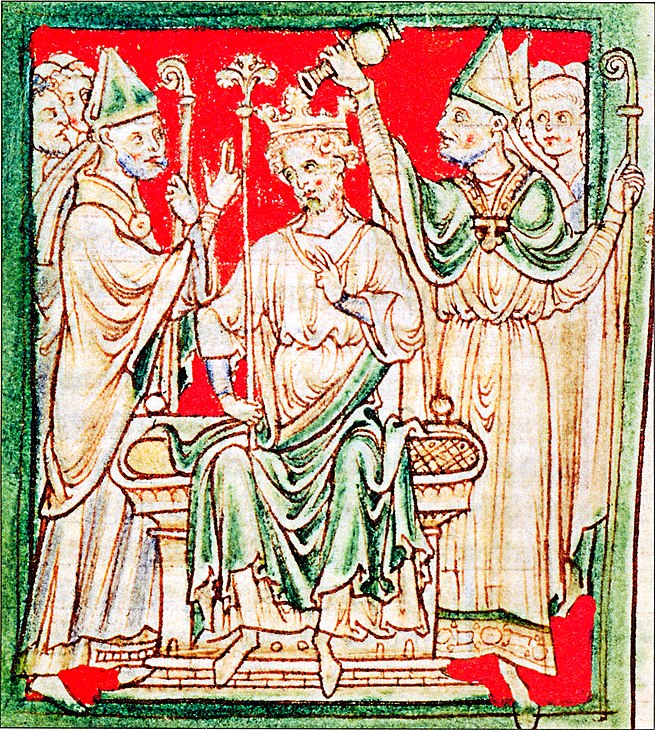
Main Difference
The main difference between Monarchy and Aristocracy is that the Monarchy is a system of government where the head of state position is inherited within family and Aristocracy is a form of government in which power is in the hands of a small, privileged, ruling class.
-
Monarchy
A monarchy is a form of government in which a group, generally a family representing a dynasty (aristocracy), embodies the country’s national identity and its head, the monarch, exercises the role of sovereignty. The actual power of the monarch may vary from purely symbolic (crowned republic), to partial and restricted (constitutional monarchy), to completely autocratic (absolute monarchy). Traditionally the monarch’s post is inherited and lasts until death or abdication. In contrast, elective monarchies require the monarch to be elected. Both types have further variations as there are widely divergent structures and traditions defining monarchy. For example, in some elected monarchies only pedigrees are taken into account for eligibility of the next ruler, whereas many hereditary monarchies impose requirements regarding the religion, age, gender, mental capacity, etc. Occasionally this might create a situation of rival claimants whose legitimacy is subject to effective election. There have been cases where the term of a monarch’s reign is either fixed in years or continues until certain goals are achieved: an invasion being repulsed, for instance.
Monarchic rule was the most common form of government until the 19th century. It is now usually a constitutional monarchy, in which the monarch retains a unique legal and ceremonial role, but exercises limited or no official political power: under the written or unwritten constitution, others have governing authority. Currently, 45 sovereign nations in the world have monarchs acting as heads of state, 16 of which are Commonwealth realms that recognise Queen Elizabeth II as their head of state. Most modern European monarchies are constitutional and hereditary with a largely ceremonial role, with the exception of the Vatican which is an elective theocracy and the Principalities of Liechtenstein and Monaco where the monarchs exercise unrestricted authority. The monarchies of Cambodia and Malaysia are constitutional with a largely ceremonial role, despite possessing significantly more social and legal clout than their European counterparts. The monarchs of Brunei, Morocco, Oman, Qatar, Saudi Arabia and Swaziland have more political influence than any other single source of authority in their nations, either by tradition or a constitutional mandate.
-
Aristocracy
Aristocracy (Greek ἀριστοκρατία aristokratía, from ἄριστος aristos ‘excellent’, and κράτος, kratos ‘rule’) is a form of government that places strength in the hands of a small, privileged ruling class. The term derives from the Greek aristokratia, meaning ‘rule of the best-born’.The term is synonymous with hereditary government, and hereditary succession is its primary philosophy, after which the hereditary monarch appoints officers as they see fit. At the time of the word’s origins in ancient Greece, the Greeks conceived it as rule by the best qualified citizens—and often contrasted it favourably with monarchy, rule by an individual. In later times, aristocracy was usually seen as rule by a privileged group, the aristocratic class, and has since been contrasted with democracy. The idea of hybrid forms which have aspects of both aristocracy and democracy are in use in the parliament form.
-
Monarchy (noun)
A government in which sovereignty is embodied within a single, today usually hereditary head of state (whether as a figurehead or as a powerful ruler).
-
Monarchy (noun)
The territory ruled over by a monarch; a kingdom.
-
Monarchy (noun)
A form of government where sovereignty is embodied by a single ruler in a state and his high aristocracy representing their separate divided lands within the state and their low aristocracy representing their separate divided fiefs.
-
Aristocracy (noun)
The nobility, or the hereditary ruling class.
-
Aristocracy (noun)
Government by such a class, or a state with such a government
-
Aristocracy (noun)
A class of people considered (not normally universally) superior to others
-
Aristocracy (noun)
the highest class in certain societies, typically comprising people of noble birth holding hereditary titles and offices
“members of the aristocracy”
-
Aristocracy (noun)
a form of government in which power is held by the nobility.
-
Aristocracy (noun)
a state in which governing power is held by the nobility.
-
Aristocracy (noun)
a group regarded as privileged or superior in a particular sphere
“Britain’s pop aristocracy”
“a new aristocracy of talented young people”
